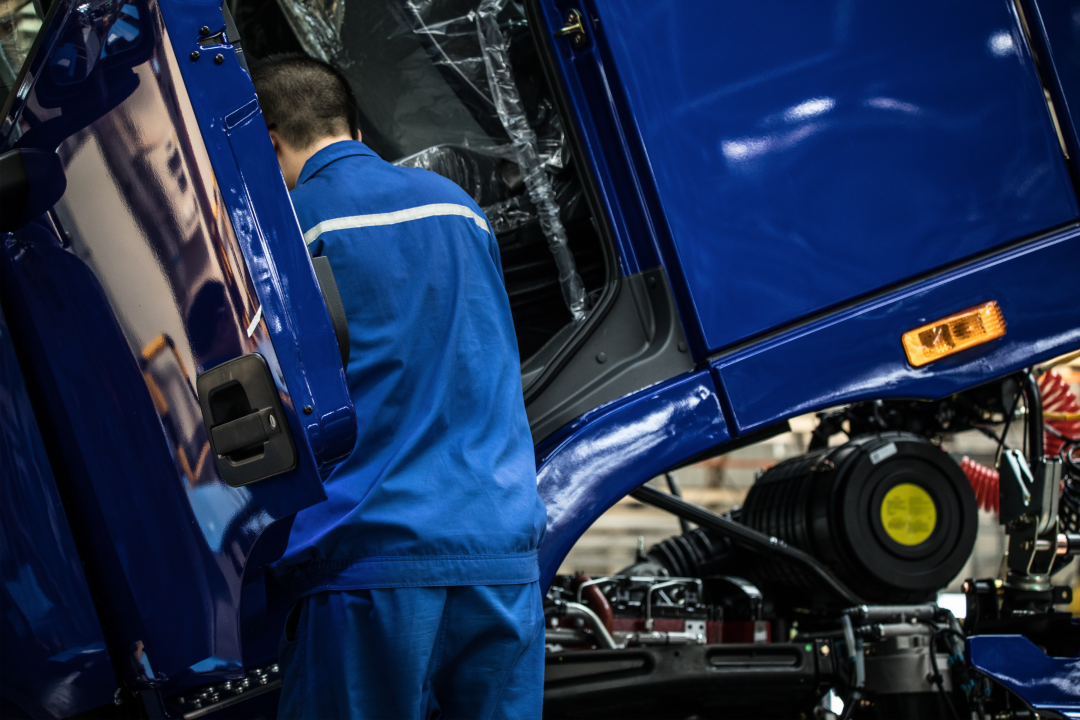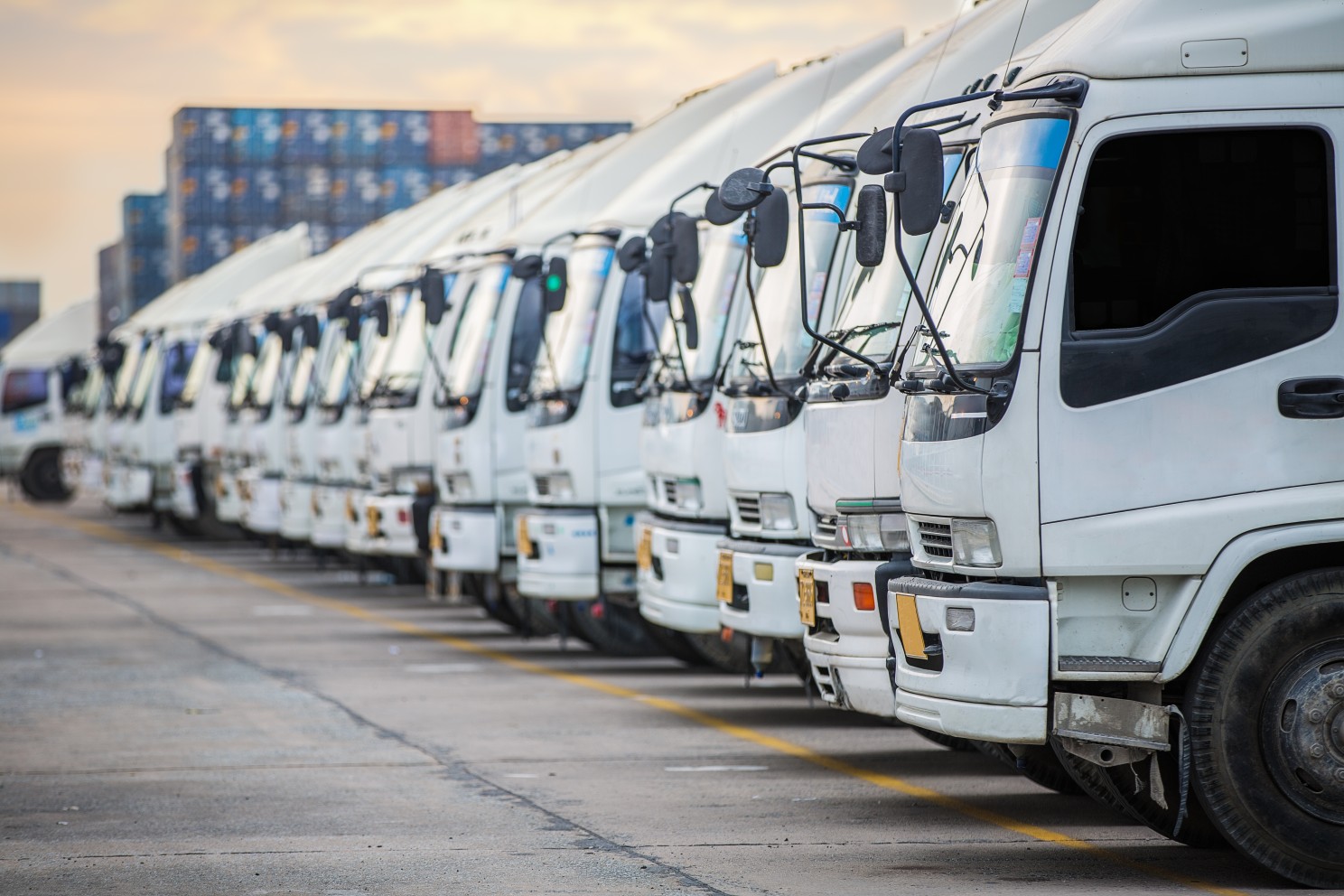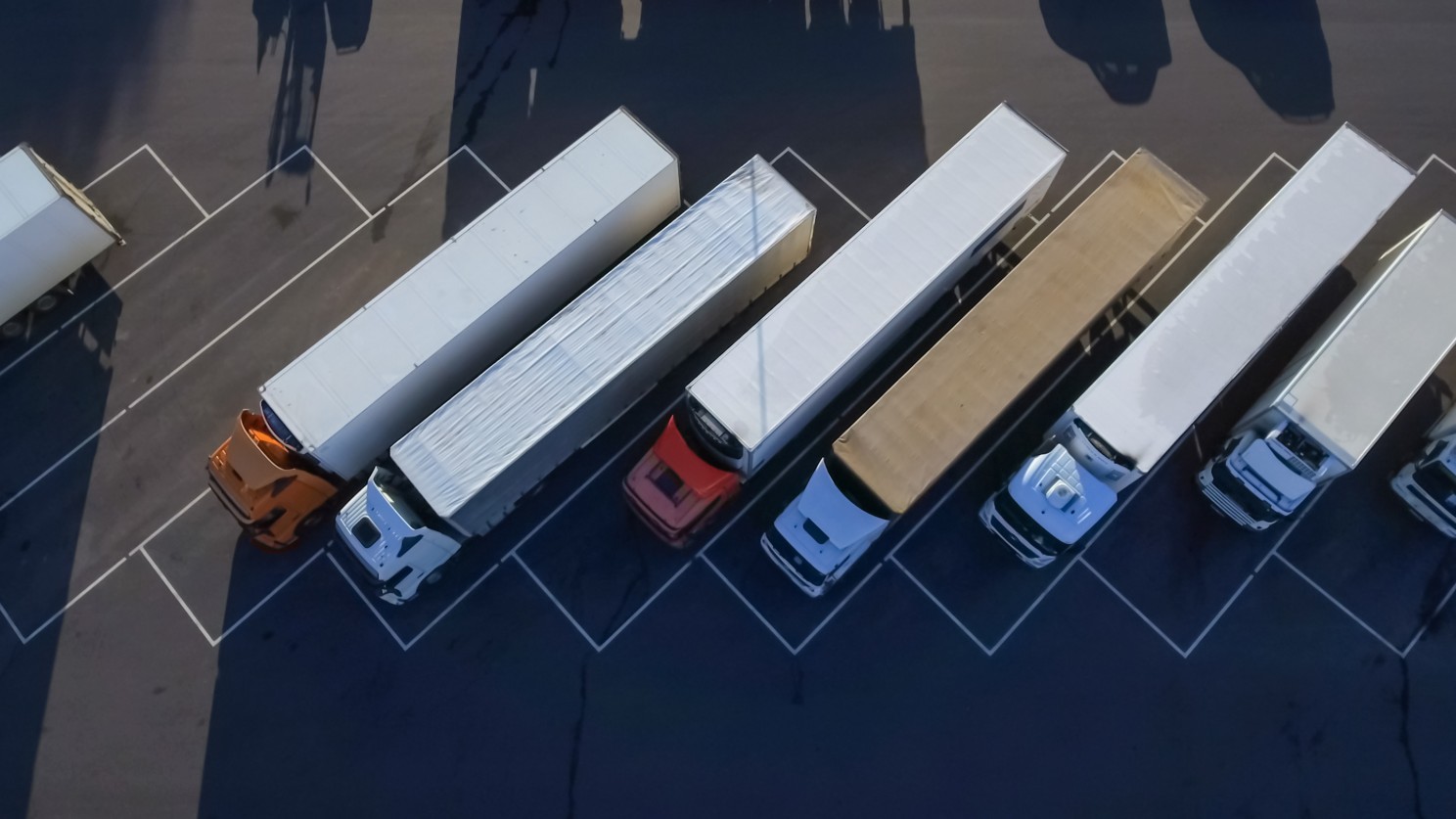
Susie Jones
Camionistas com deficiência - que apoio está disponível?
Criado: 12/08/2024
•
Atualizado: 12/08/2024
No Reino Unido, 23% da população em idade ativa declarou ser portadora de deficiência - sem que muitos o saibam, uma boa parte é constituída por camionistas que atravessam interminavelmente a Europa para entregar as suas mercadorias. Apesar de enfrentarem muitos desafios, a sua presença na comunidade de camionistas realça a importância da inclusão e da diversidade no sector.
Se eu tiver uma deficiência, posso conduzir um camião?
Se tiver uma deficiência física ou cognitiva, pode conduzir um veículo pesado de mercadorias. No entanto, tem de passar por um exame médico para determinar se está suficientemente apto. Um exame médico consiste no seguinte:
Uma conversa com um médico sobre a sua saúde: Os condutores devem ser honestos e abertos.
Um exame físico em que o médico verificará:
Tensão arterial
Coração
Visão
Teste de diabetes
Doenças neurológicas
Perturbações do sono.
Uma vez concluído, o DVLA decidirá se pode conduzir.
Ajustes no camião
Para os condutores com deficiências físicas, estão disponíveis as seguintes modificações:
Controlos manuais para substituir os pedais
Ajudas à direção
Aceleradores de pé esquerdo
Conversão da embraiagem
Arneses
Assentos especializados
Equipamento de arrumação de cadeiras de rodas.
Em 2021, o fabricante de veículos pesados MAN adaptou quatro [camiões para condutores com deficiência] (https://trans.info/check-out-the-lorries-man-altered-to-accommodate-disabled-drivers-228342). As adaptações implicaram equipar os camiões com uma plataforma de elevação para que os utilizadores de cadeiras de rodas pudessem aceder facilmente à cabina - com todos os comandos instalados no volante ou à volta dele.
Embora a tecnologia e as adaptações estejam a avançar no sector, muitos condutores com deficiência continuam a enfrentar desafios no trabalho.

Que obstáculos enfrentam os condutores de camiões com deficiência?
Pode ser difícil para os condutores deficientes conseguirem um lugar no sector, mesmo que tenham as qualificações necessárias e tenham passado no exame médico. Muitas empresas têm relutância em fornecer um veículo adaptado, uma vez que este pode ser um investimento dispendioso.
Para os condutores dispostos a pagar as adaptações necessárias, Andy, Diretor Executivo da instituição de caridade [Globe Truckers UK] (https://www.globetruckersuk.org/), afirma que continua a ser difícil encontrar emprego.
"Algumas empresas de transporte estão relutantes em empregar pessoas com deficiência - muitas vezes desconfiam dos obstáculos que os condutores enfrentam fora da cabina, por exemplo, escadas e elevação."
David Chambers, um [condutor de veículos pesados de mercadorias com deficiência] (https://www.disabilitynewsservice.com/disabled-hgv-driver-accuses-back-to-work-ministers-of-hypocrisy-over-equality-laws/), falou contra as provações que enfrenta diariamente e apelou a ajustamentos razoáveis à Lei da Igualdade - especialmente depois de o Governo ter apelado a que mais pessoas que beneficiam de prestações por deficiência [regressem ao trabalho] (https://www.disabilityrightsuk.org/news/chancellor-announces-back-work-plan-disabled-people-backed-tougher-sanctions#:~:text=Forming%20part%20of%20his%20Autumn,for%20and%20stay%20in%20work.).
David e muitos outros têm dificuldades em grandes depósitos onde, ao abrigo da [Lei da Igualdade] (https://www.legislation.gov.uk/ukpga/2010/15/contents), o depósito não é obrigado a fazer adaptações razoáveis para os condutores com deficiência. Por razões de segurança, têm de esperar longe dos seus camiões enquanto descarregam, o que os obriga a percorrer longas distâncias a pé e a subir escadas.
Que apoio existe para os condutores de camiões com deficiência?
Encontrar apoio pode ser trabalhoso para quem tem ferimentos ou doenças que alteram a sua vida. A instituição de caridade Globe Truckers do Reino Unido foi criada propositadamente por condutores para ajudar os condutores - prestando apoio aos feridos, doentes ou deficientes.
"Muitos condutores com deficiência ou feridos não sabem a quem recorrer, pois existe muito pouca informação para eles. É aí que nós entramos e oferecemos o nosso apoio e orientação - quer seja indicando-lhes as pessoas certas ou fornecendo financiamento para equipamento."
"Alguns condutores só precisam de alguém com quem falar e nós estamos aqui para lhes oferecer esse apoio de todas as formas possíveis. No futuro, gostaríamos de poder financiar adaptações de camiões para os condutores. As adaptações podem ser muito dispendiosas e a maioria dos condutores com deficiência tem de as pagar do seu próprio bolso. Para o conseguirmos, precisamos de mais financiamento e apoio por parte dos profissionais do sector", afirma Andy.
Como é que a indústria pode ajudar?
Para uma paisagem mais inclusiva e diversificada, a indústria tem de fazer mais para acomodar as deficiências físicas e cognitivas - uma mudança que tem de acontecer em breve, diz Andy.
"É vital que a indústria dedique o seu apoio e tempo a si própria, seja diretamente aos condutores deficientes ou a instituições de caridade como a Globe Truckers. A indústria não pode esperar atrair as pessoas se não der apoio às minorias".
Sendo um refúgio para muitos condutores, as paragens de camiões podem abrir caminho através da disponibilização de instalações acessíveis. Em 2022, o Governo investiu [100 milhões de libras] (https://www.gov.uk/government/news/up-to-100-million-boost-to-improve-hgv-roadside-facilities) no sector para melhorar as instalações na estrada e criar parques de camiões mais seguros.

O financiamento do Governo poderia melhorar a acessibilidade dos condutores com deficiência nas paragens mais populares. Alterações como as que se seguem poderiam ter um impacto substancial:
Lugares de estacionamento acessíveis a cadeiras de rodas: os condutores que têm dificuldade em entrar e sair da cabina necessitam de espaço adicional - especialmente para os que necessitam de um guincho.
Serviços acessíveis: restaurantes, casas de banho e outras instalações acessíveis garantem um ambiente inclusivo.
As empresas de frotas podem contribuir para a criação de um ambiente mais inclusivo através da aplicação das seguintes medidas
Modificação de camiões - permitir uma operação fácil para condutores com deficiência através de controlos manuais e tecnologias adaptativas.
Apoio e formação - oferta de cursos para responder a desafios ou necessidades específicas.
Práticas de contratação inclusivas - adotar uma abordagem não preconceituosa na contratação promove uma cultura inclusiva e diversificada.
Proporcionar uma cultura diversificada e inclusiva é vital para atrair mais condutores para o sector dos transportes. O apoio às pessoas com deficiências físicas e cognitivas tem sido negligenciado pelo sector, deixando muitos condutores sem saber a quem recorrer. Os condutores com deficiência oferecem um ponto de vista único e uma capacidade de adaptação que é uma mudança bem-vinda no sector
O que fazer se ficar incapacitado durante a sua carreira?
Se desenvolver uma condição médica ou deficiência "notificável", deve informar o DVLA - o DVLA fará o seguinte:
Decidir por carta - algumas circunstâncias podem exigir mais informações.
Avaliar o seu estado de saúde e decidir o resultado.
Se precisar de adaptar o seu veículo, precisará de uma avaliação independente das suas [adaptações] (https://www.drivingmobility.org.uk/)
Se tiver de deixar de conduzir, o DVLA dar-lhe-á uma razão médica para o fazer.



